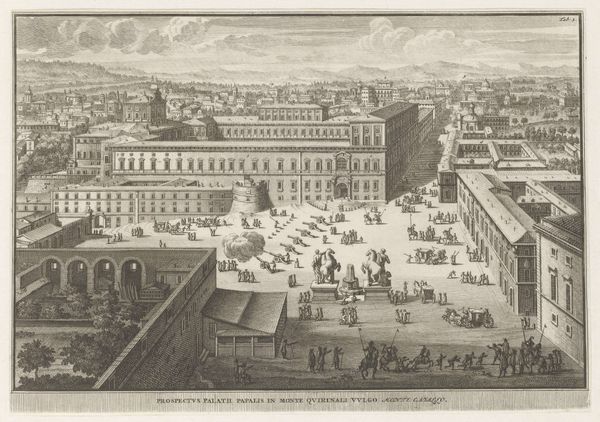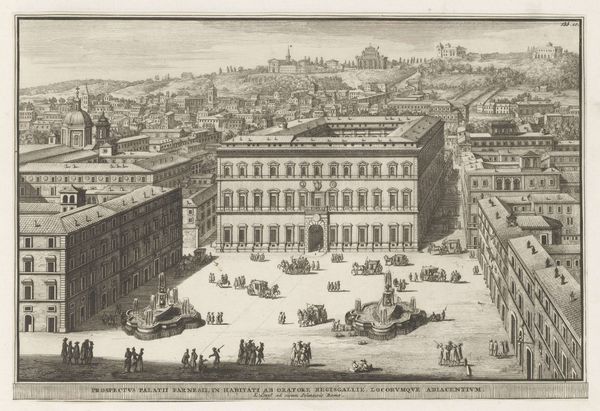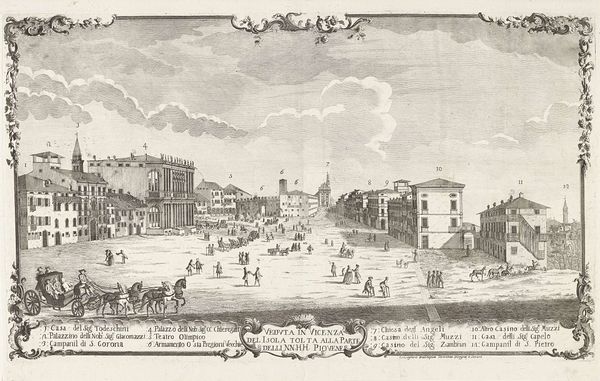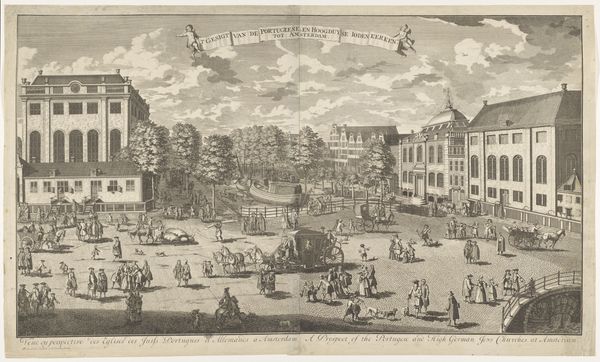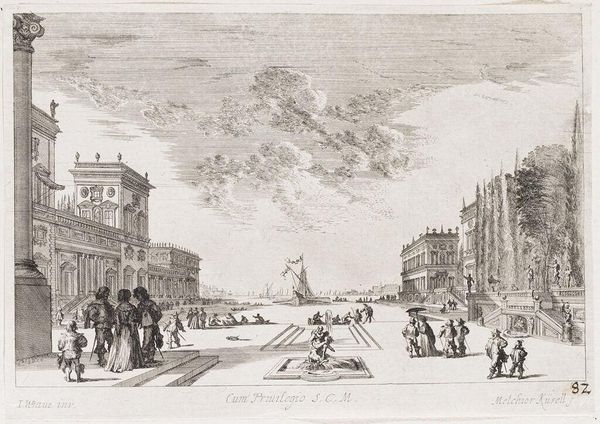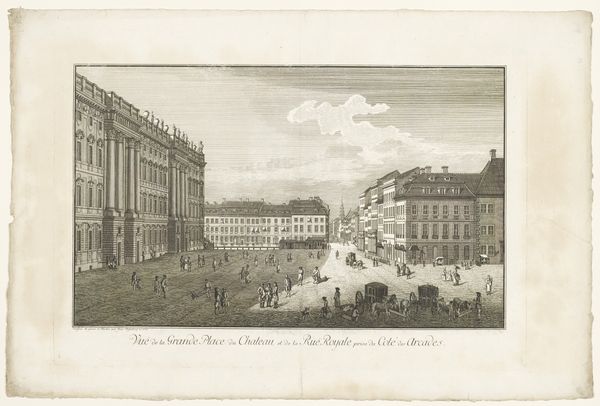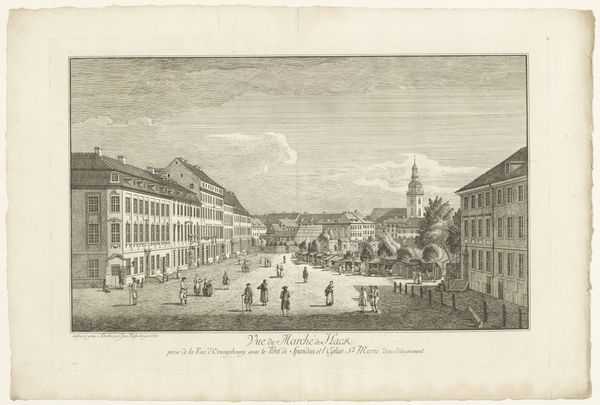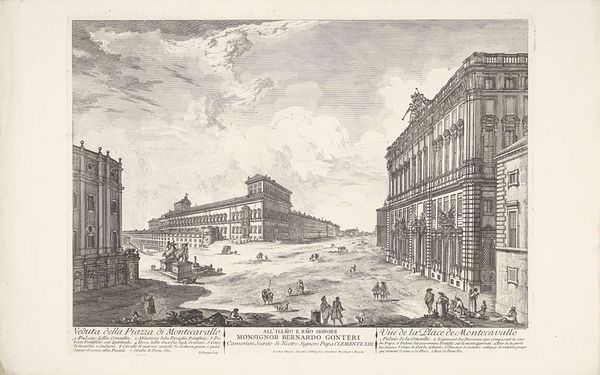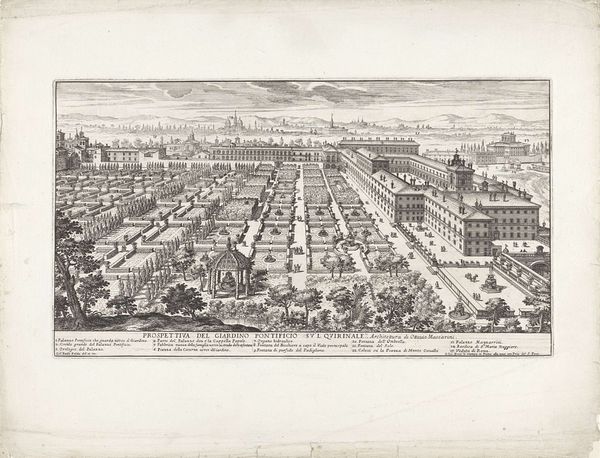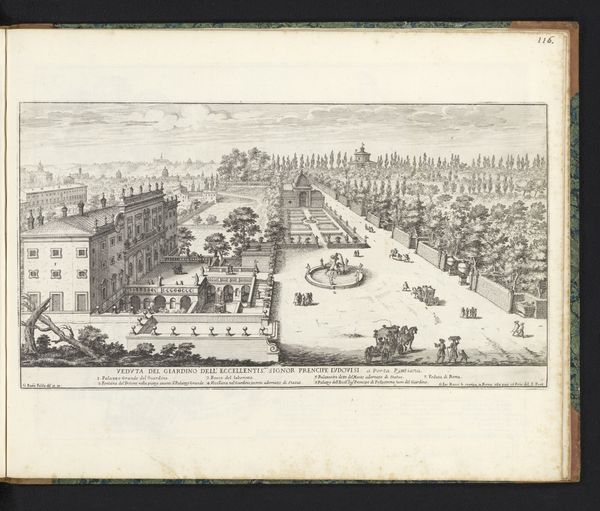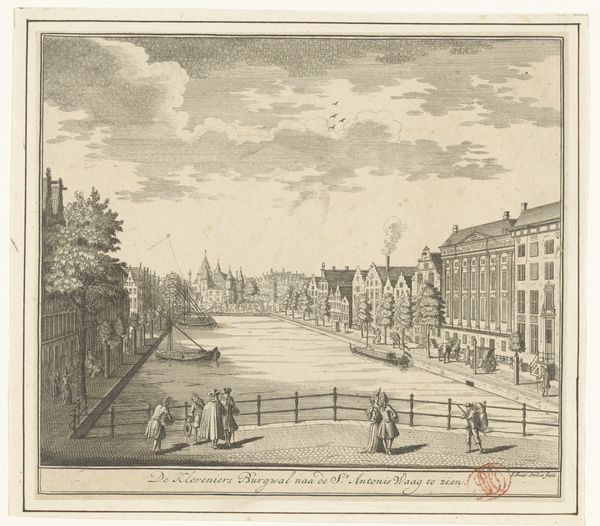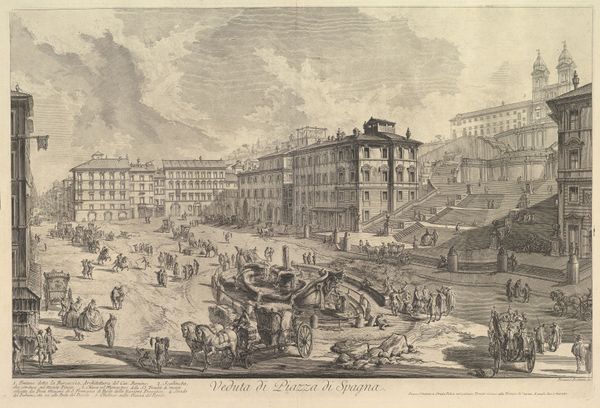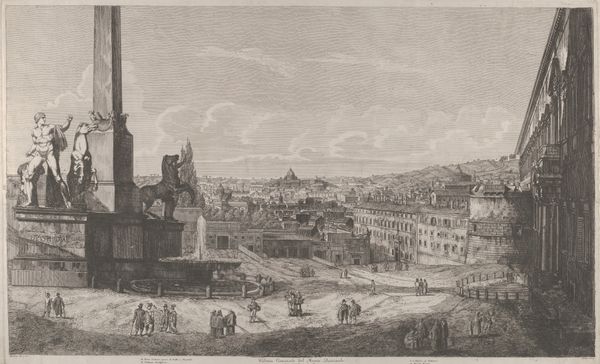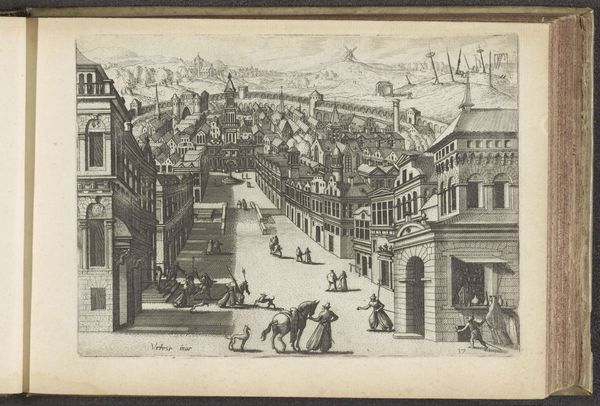
print, engraving, architecture
#
baroque
# print
#
old engraving style
#
geometric
#
line
#
cityscape
#
italian-renaissance
#
engraving
#
architecture
#
realism
Dimensions: height 215 mm, width 325 mm
Copyright: Rijks Museum: Open Domain
This print of the Piazza di Spagna in Rome was made by Jacobus Baptist sometime around the turn of the 18th century. It's an etching, meaning that the image was created by incising lines into a metal plate, inking the surface, and then using a press to transfer the ink onto paper. Prints like this were made by skilled artisans, demonstrating precision in the way they manipulated line and tone to create a lively impression of a bustling city. The image not only provides visual information, it also speaks to the culture of collecting and circulating images in early modern Europe. Consider the labor involved: from the production of the paper, to the making of the printing press and the preparation of the ink, this print reveals a whole chain of skilled craftsmanship. Ultimately, understanding the material process involved in the creation of the print, helps us to appreciate it as a unique and valuable object.
Comments
No comments
Be the first to comment and join the conversation on the ultimate creative platform.
